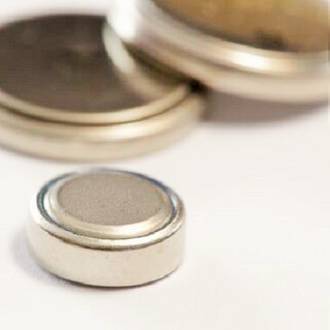Shop
01150
https://www.under5s.co.nz/shop/Hot+Topics+Articles/Toys+Books+Play/Button+battery+safety+for+kids.html
Button battery safety for kids
|
Small silver round button batteries and lithium coin batteries look quite harmless, but they can be extremely dangerous if children swallow them, and can cause significant and potentially fatal injuries – in less than 2 hours! Find out how to keep your kids safe from the dangers of button batteries.
|
You might also be interested in ...
5 Easy ways preschoolers can help out at home
Preschoolers love to be a part of what you’re doing, so why not encourage them to help you out with simple chores around the house. Give them jobs they can do by themselves or with a little help from you. Have a look at these ideas on how to get your preschooler started with some basic chores.
Top NZ baby names for 2018
The official list is out! The 10 most popular baby names in New Zealand for 2018 have been confirmed in the annual report from NZ Department of Internal Affairs.
join usJoin us on social media for all our latest news. |
sign upSign up and receive our latest newsletters. |
|







Find out how to keep your kids safe from the dangers of button batteries.
Why are button batteries dangerous for kids?
Young children love to put things in their mouth, ears and nose as they explore, so parents and caregivers need to be aware of the potential risks that button batteries can cause.Most button batteries are the size of a 10 cents coin and pass through the body without a problem. But if a button battery, particularly a lithium coin battery, comes into contact with bodily fluids when swallowed or ingested, it creates an electrical current and the energy from the battery can make the body create caustic soda (the chemical used to unblock drains!).
This can cause deep and extremely fast corrosion burns through the throat or other organs and lead to serious internal bleeding and sometimes death.
Lithium coin batteries are even more powerful and the most dangerous as the higher voltage means more energy is released, creating more caustic soda. The reaction can happen in as little as two hours.
It’s not just swallowing batteries that can cause harm, button batteries that get stuck in your children’s ears or nose can be potentially dangerous too.
Where are button batteries found?
Button batteries are becoming increasingly common and used in a wide range of toys, gadgets and other everyday objects you’ll find around the house.Lots of these objects have buttons and surfaces that young children love to explore and play with. These include:
Keeping kids safe from button batteries
In New Zealand, one child a month needs emergency surgery to remove an ingested button battery, which can cause severe burns to their throats and noses.Although less serious incidents are likely to be underreported, at least 20 coin lithium battery ingestion cases are treated each year at Starship children's hospital in Auckland.
Keep kids safe from button batteries by:
Although it might not be obvious at first, if parents or caregivers suspect that their child has swallowed or ingested a battery, they should be taken to hospital immediately.What to do if your child swallows a button battery
They may still be breathing normally or have developed cold or flu-like symptoms, but if you suspect anything at all, you need to act fast.
More information
For more information about the potential harm that button batteries and lithium coin batteries can do visit the SafeKids website.Check out our other Hot Topics on: